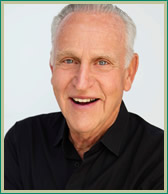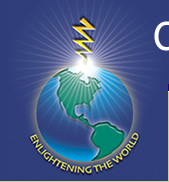
The Power of Expectation
|
 |
|
| Dr. Stephen L. Sokolow Executive Director and Founding Partner |
You Will See It When You Believe It. That’s the title of one of my favorite books by Wayne W. Dyer. It turns scientific thinking on its head. Science-minded people and skeptics are fond of saying “I’ll believe it when I see it.” For many, these are either-or propositions. Paradoxically, both perspectives are powerful ways of thinking, and each can serve us as leaders and as human beings.
There is a close relationship between belief and expectation. It certainly can be argued that what you expect is what you believe will happen. Where this gets interesting is how what you believe can shape what actually happens. This is true at many levels of reality: physical, psychological, mental, emotional, energetic, and metaphysical.
I have a very close friend who had stage four colon/liver cancer. From the time he was diagnosed he sought the best care and treatment. Despite the pain and an onerous regimen of chemotherapy, he maintained a positive attitude and a deep belief that he would survive despite daunting odds. Today he is cancer-free. Some would say he was among the lucky four percent. I believe that a necessary, though not sufficient, aspect of his healing was his expectation that he would not only survive but thrive. To sit by and just expect you will heal is magical thinking, with an extremely low probability of success. Similarly, you can get state-of-the-art treatment, but if you believe (expect) to die you increase the probability that you will. You increase your chances dramatically when you get excellent treatment and believe (expect) you will heal. Maintaining a positive perspective (expectation) in such circumstances is not easy. Overcoming our fear is not easy in the face of pain and scary statistics. Our beliefs, emotions, and psychological and physical well-being are intertwined…connected.
There are techniques to assist us in maintaining positive expectations. Steadfastly visualizing positive outcomes is one of them. Seeing yourself in your mind’s eye as healthy and happy and healed can be a powerful way to use expectation. Saying positive affirmations at least three times in succession several times a day while looking in the mirror can help send healing messages into our unconscious mind. Science is beginning to take a hard look at many such practices. Much has been written about the mind/body connection. One of my favorite books on this subject is The Biology of Belief, by Bruce Lipton. Lipton traces the effect of thought on the body at the cellular level. Powerful medical imaging devices make it possible to see the effect of thought on the physical body.
A number of the themes that Paul Houston and I write about are interrelated. We write about the power of expectation, a positive attitude, visualization, affirmation, intention, trust, attention, mind/body/spirit, gratitude, hope, intuition, openness, and prayer. All of these can play a role and can affect our expectations. To maximize the power of your expectations you may have to adjust your attitude, or be more open. You may have to focus your attention on the positive, practice visualization, or use affirmations. You may benefit from sharing your intentions, trusting your caregivers and physicians, being hopeful, being grateful, and, depending on your belief system, engaging in prayer.
Let me shift gears from the power of expectation as it relates to healing to the power of expectation in our relationship with others, both at home and in our work environments. My disposition is such that I tend to have high expectations for myself and others. I’m not talking about rose-colored glasses, though I’m sure they have their place. One of my friends once told me, “It’s not easy to be your friend because you have such high expectations for the way friends should behave toward one another.” During my college days I joined a fraternity and had the privilege of serving as its president. I had high expectations for what it meant to be a fraternal brother and what that meant in terms of the way we should treat one another. As a superintendent of schools I had high expectations for what everyone in the district could accomplish together. I expected people to do top-quality work and push themselves to grow and achieve. Most of the time people worked hard to meet or even exceed those expectations. In my home life, my youngest son once told me that the greatest gift I ever gave him was a belief (expectation) that he would be successful despite some rough patches along the way. It was a natural and organic process—not one that was contrived. Expectations have power when they are real, sincere, and come from strongly held beliefs.
The effects of expectations can uplift and empower, or they can diminish and dis-empower. If you expect people to fail you increase the likelihood that they will do exactly that. If you expect people to succeed, and give them support, you increase the likelihood that they will succeed. The dynamic of the self-fulfilling prophecy has been well documented. Expectations can and should be adjusted to accommodate changing realities and circumstances; like Goldilocks’ porridge, they have to be just right. If expectations are unreasonably high, people may give up. If they are too low, people can lose interest and believe they are wasting their time and talents. Wise and effective leaders strive to find the sweet spot as they exercise the power of their expectations.
About a year ago I broke my left leg in a skiing accident and tore the ligaments that bind the fibula and tibia in my high ankle. Practicing many of the perspectives I mentioned previously, I was able to return to the slopes this past March. I had high hopes and expected to heal. Other than skiing again, one of my concerns when I lost the use of my leg for three months was whether I’d be able to return to playing golf. I took up golf late in life after I became a pension-activated superintendent of schools. Golf has been and continues to be a humbling experience. After my leg healed, I joked that the good news was that I could play golf as poorly as before. In truth, no matter how badly I played I always had the expectation that I would someday play bogey golf. (For non-golfers that’s an average of about one stroke over par, or scoring in the low 90s.) Despite having taken many lessons during the past three years, scoring in the low 90s often seemed an unreachable goal. Well, on April 6 of this year, after having lost more golf balls than I can count, I was rewarded with a score of 93! Despite incontrovertible evidence to the contrary, I never yielded in my expectation that I would someday play bogey golf. Having done it once, I now know that it is possible. To paraphrase Wayne Dyer, I will see it because I believe it, and I will continue to work at it until my expectation becomes the norm.
![]()
Center for Empowered Leadership ®
Email: info@cfel.org
Phone: 1.609.259.7911
